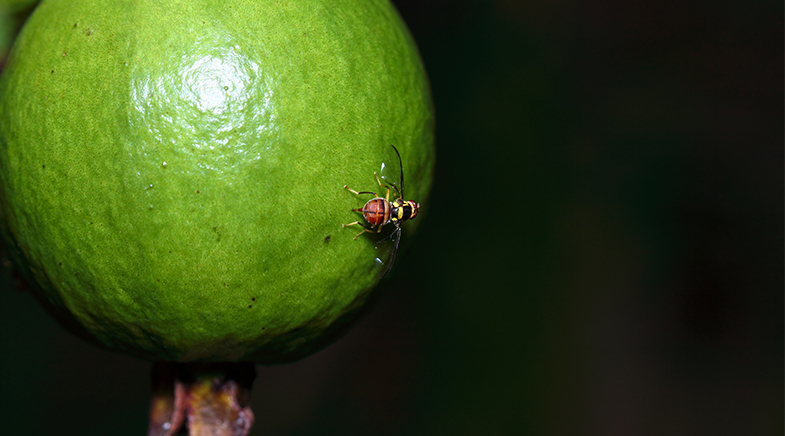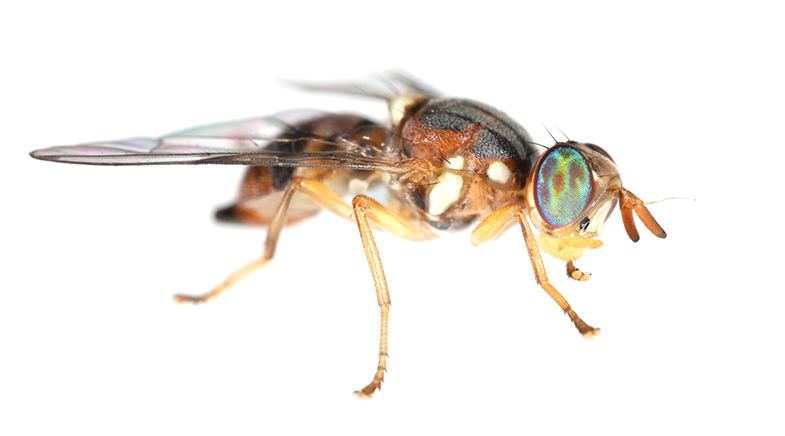Saving fruits with ants' help
-
- from Shaastra :: vol 01 issue 05 :: Sep - Oct 2022

Weaver ants may come to the aid of farmers in Southeast Asia. Entomologists at the Bengaluru-based Indian Institute of Horticultural Research (ICAR-IIHR), a constituent laboratory of the Indian Council of Agricultural Research, have found that certain volatile chemical compounds released by weaver ants could prevent the destructive oriental fruit flies, Bactrocera dorsalisa, from laying eggs inside fruits.
These fruit flies, endemic to Southeast Asia, are a major threat to fruit crops as females of the species tend to lay their eggs inside a fruit after penetrating it with their ovipositor.
Oriental fruit flies are considered a high-risk quarantine pest across the world. "They cause a huge loss to farmers," says P.D. Kamala Jayanthi, who led the study, which appeared in the September 10 issue of Current Science.
Using chemical insecticides to prevent the infestation of fruit flies is not advisable as such applications of harmful chemicals, especially just before harvests, may lead to high levels of pesticide residue in harvested fruits. Besides, their spraying can also be detrimental to pollinators.
Both these issues can be overcome if safe pest management strategies are harnessed in agriculture.
Towards this end, the ICAR-IIHR team thought of exploiting natural predator-prey interactions found in the insect world. For instance, many female insects avoid laying eggs in places where a predator’s presence is felt.

Weaver ants, or green ants, normally build nests in fruit-bearing trees such as mango and cashew nut trees. The scientists wanted to see if volatile compounds released by weaver ants would deter fruit flies.
Lab experiments showed that the oriental fruit flies stayed away from places smeared with n-tridecane.
To test this, they identified three such chemical compounds — n-undecane, n-dodecane and n-tridecane — released by the ants and decided to probe their efficacy.
Their lab experiments showed that the oriental fruit flies stayed wholly away from places smeared with n-tridecane, while there was considerable reduction in the number of eggs laid on plants treated with n-undecane.
Subsequently, the researchers mixed and matched the three compounds and their synthetic versions and confirmed their findings: these volatiles do indeed deter the oriental fruit fly from spawning in fruits.
"As a next step, we would be testing their efficacy on field conditions by trying them in orchards growing guavas and other fruits," Jayanthi told Shaastra. She hoped that using these behaviour-modifying chemicals in a blend as a pre-harvest spray would prevent egg-laying by oriental fruit flies in ready-to-harvest fruits and thus help farmers.
Have a
story idea?
Tell us.
Do you have a recent research paper or an idea for a science/technology-themed article that you'd like to tell us about?
GET IN TOUCH














